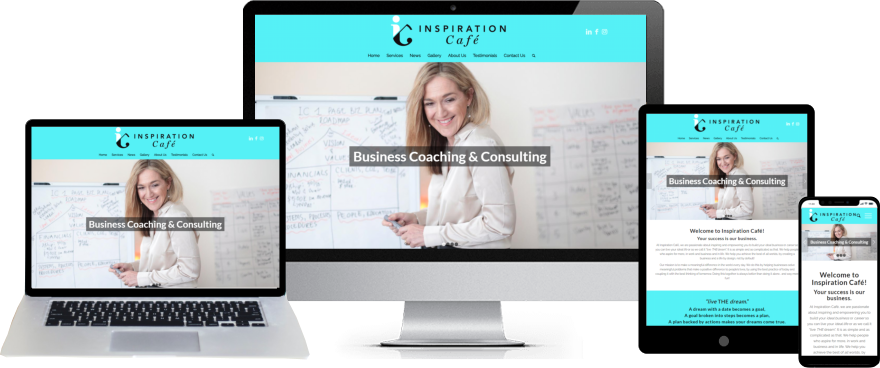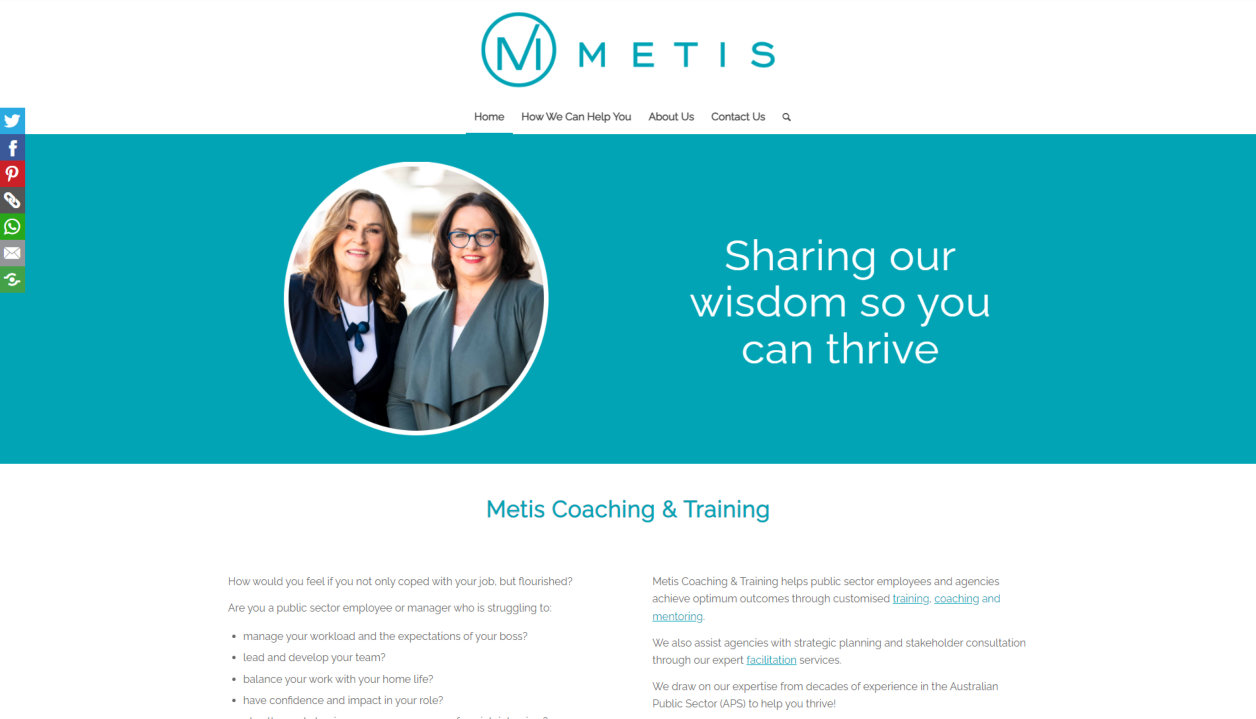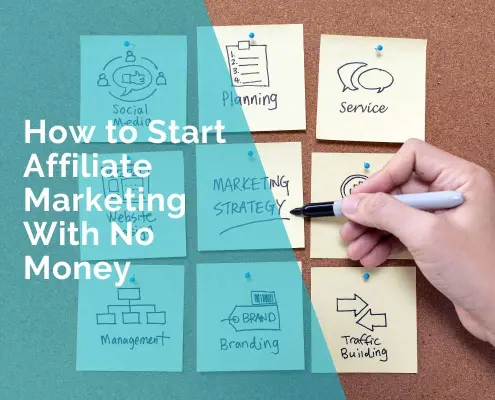The Benefits of Coaching and Consulting
Coaching and consulting are versatile career paths that offer numerous advantages, both for those seeking guidance and for the professionals who provide it. Let’s explore some of the key benefits:
Helping Clients Achieve Their Goals and Solve Problems
Personalized Guidance
One of the most rewarding aspects of coaching and consulting is the opportunity to provide tailored assistance. Coaches and consultants work closely with their clients to understand their unique challenges and goals, creating customized strategies for success.
Goal Achievement
Clients often seek coaching or consulting services because they want to achieve specific objectives, whether in their personal lives or businesses. Coaches help individuals map out clear pathways to reach these goals, while consultants offer expert solutions to complex problems. The satisfaction of witnessing clients succeed is immeasurable.
Improved Decision-Making
Clients gain clarity and confidence in their decision-making processes through coaching and consulting. Professionals in these fields provide insights, alternative perspectives, and tools for making informed choices, leading to better outcomes.
Accountability
Coaches and consultants act as accountability partners, helping clients stay on track and remain committed to their objectives. This support can make a significant difference in the journey to success.
Flexibility in Terms of Work Hours and Location
Work-Life Balance
Many coaches and consultants have the freedom to set their own schedules. This flexibility allows for a better work-life balance, enabling them to pursue other interests or spend more time with family and friends.
Location Independence
The digital age has opened up opportunities for remote coaching and consulting. Professionals can work from anywhere with an internet connection, allowing them to reach a global clientele without being tied to a specific location.
Diverse Clientele
Flexibility in work hours and location enables coaches and consultants to cater to clients from various time zones and backgrounds, broadening their experience and expanding their reach.
High Earning Potential
Value-Based Pricing
Coaches and consultants often charge fees based on the value they provide to clients. As their expertise and reputation grow, they can command higher rates. This value-based pricing model can lead to substantial income potential.
Multiple Income Streams
Beyond one-on-one coaching or consulting sessions, professionals in these fields can diversify their income streams by offering group coaching, workshops, online courses, books, and other resources. These additional offerings can significantly boost earnings.
Scaling Opportunities
As a coaching or consulting practice expands, there is the potential to scale the business by hiring and training associates. This not only increases income but also extends the reach of the services provided.
Personal and Professional Growth for Coaches and Consultants
Continuous Learning
Coaches and consultants are lifelong learners. To stay effective, they must stay updated on industry trends, human behavior, and problem-solving techniques. This commitment to learning fosters personal and professional growth.
Enhanced Communication Skills
Professionals in these fields develop exceptional communication and interpersonal skills. They learn to empathize with clients, actively listen, and provide constructive feedback. These skills are invaluable in all areas of life.
Self-Reflection
Coaches and consultants often find themselves helping others navigate challenges similar to their own. This process of assisting others can lead to profound self-reflection and personal development.
Impact on Others
Witnessing the positive impact of their work on clients’ lives can be deeply fulfilling. Coaches and consultants derive a sense of purpose from knowing they make a difference in the world.
How Coaches and Consultants Can Earn Money from Their Website
In today’s digital age, a well-crafted website can be a powerful tool for coaches and consultants to not only showcase their expertise but also generate income. Here’s a guide on how you can monetize your website effectively:
1. Offer Online Coaching or Consulting Services
Booking System: Implement a user-friendly booking system on your website that allows clients to schedule appointments with you directly. You can offer different packages, such as one-on-one coaching sessions, group coaching, or consulting services.
Payment Processing: Set up secure payment processing to accept fees for your services. Popular platforms like PayPal, Stripe, or specialized coaching payment systems can be integrated into your website.
Content Access: Create a members-only section where clients can access resources, recorded sessions, or additional content after they’ve paid for your services.
2. Sell Digital Products and Courses
Ebooks and Guides: If you have expertise in a specific niche, consider creating and selling downloadable ebooks, guides, or whitepapers related to your field.
Online Courses: Develop comprehensive online courses or webinars that provide in-depth knowledge and practical skills. These can be sold individually or as part of a subscription model.
Merchandise: Design and sell merchandise related to your coaching or consulting brand, such as branded merchandise, workbooks, or merchandise that aligns with your niche.
3. Membership Programs
Subscription-Based Content: Offer premium content exclusively to members who pay a monthly or annual subscription fee. This can include access to your live webinars, Q&A sessions, or a library of resources.
Community Forums: Create private discussion forums or groups where members can interact, share experiences, and seek advice. Charge a membership fee to access these valuable communities.
4. Affiliate Marketing
Recommend Tools and Resources: As a coach or consultant, you likely use various tools and resources in your work. You can earn commissions by promoting these tools and resources on your website through affiliate marketing programs. Ensure the products or services align with your niche and provide value to your audience.
5. Sponsored Content
Collaborations: Collaborate with brands or businesses relevant to your coaching or consulting niche. Write sponsored articles, reviews, or create content that highlights their products or services. You can earn income from these partnerships.
6. Online Workshops and Webinars
Live Events: Host live workshops, webinars, or masterclasses on your website. Charge attendees a fee to access these events, and provide valuable insights and practical takeaways.
7. Lead Generation
Email Marketing: Use your website to build an email list of potential clients and interested individuals. Nurture these leads with valuable content and offers, eventually converting them into paying clients.
8. Ad Revenue
Display Ads: Consider displaying relevant advertisements on your website through ad networks like Google AdSense. While this may not be the primary income source, it can generate some passive income.
9. Consulting or Coaching Marketplace
Online Directory: If you offer coaching or consulting in a specific industry, create an online directory of practitioners in your niche. Charge others to be listed in the directory, thus providing them with exposure to potential clients.
10. Donations and Support
Accept Donations: If your content provides significant value to your audience, some visitors may be willing to donate to support your work. Include a donation button or link on your website.
11. Diversify Your Income Streams
To maximize your earnings, consider implementing multiple revenue streams on your website. Experiment with different strategies to see what works best for your coaching or consulting business.
Remember, a successful monetization strategy requires trust and consistency. Always prioritize delivering high-quality content and services to your audience. Building a strong online presence takes time, but with dedication and a well-planned strategy, your website can become a valuable source of income as a coach or consultant.
Building Your Brand as a Coach or Consultant
Building a strong brand is essential for coaches and consultants. It not only establishes credibility but also attracts potential clients. Here’s a detailed look at how to build your brand effectively:
Creating a Professional Website and Online Presence
Choose a Domain Name
When setting up your online presence, start with a domain name that reflects your expertise. For instance, if you’re a career coach like Emily, who specializes in assisting individuals transition to tech careers, consider a domain like “TechCareerCoach.com” to make your niche clear and accessible.
User-Friendly Design
Ensure your website design is user-friendly. Just like Sarah, the gardening expert, who maintains an inviting garden that draws in visitors, your website should have a clean layout, intuitive navigation menus, and a responsive design. This way, it appeals to both desktop and mobile users, making it easy for potential clients to explore your services.
Professional Branding
Build a professional image by maintaining consistent branding elements. Much like how established brands like Apple use the same iconic logo and colour schemes across all their products and marketing materials, you too should employ a unified visual identity on your website, social media profiles, and any promotional materials.
High-Quality Content
Demonstrate your expertise through high-quality content. Similar to how Emily, the gardening enthusiast, shares her knowledge through gardening articles, you can showcase your skills by publishing informative blog posts. If you’re a career coach, consider topics like resume writing, job interview strategies, and insights into industry trends
Testimonials and Case Studies
Build trust by showcasing client testimonials and success stories. Just as Emily displays her blooming garden as a testament to her skills, prominently feature quotes from satisfied clients on your homepage. Additionally, provide in-depth case studies that illustrate how you’ve helped clients achieve their career goals, such as securing their dream tech jobs.
Contact Information
Make it easy for visitors to contact you. Include a contact form, email address, and perhaps a phone number. Also, consider adding a chat feature for real-time inquiries.
Social Media Integration
Connect your website to your social media profiles. This enables visitors to follow you on platforms where you share additional content and interact with your audience.
Search Engine Optimization (SEO)
Optimize your website for search engines. Use relevant keywords, meta descriptions, and alt tags for images to improve your site’s visibility in search results.
Newsletter Signup
Encourage visitors to subscribe to your newsletter. This allows you to nurture leads over time and share valuable insights directly with interested parties.
Developing a Unique Value Proposition
Identify Your Unique Skills
Determine what sets you apart from others in your field. What unique skills, experiences, or approaches do you bring to coaching or consulting?
If you’re a marketing consultant, your unique skills might include a deep understanding of emerging social media platforms or expertise in niche markets like eco-friendly products.
Target Audience
Clearly define your target audience. Knowing who you want to serve helps you tailor your services and messaging to meet their specific needs.
For example you might specialize in helping small businesses with limited budgets achieve big marketing results.
Solve a Problem
Your value proposition should revolve around solving a problem or fulfilling a need your target audience has. Make it clear how you can make their lives better or help their businesses succeed.
For example, we help small businesses maximize their online presence without breaking the bank.
Quantify Benefits
Whenever possible, quantify the benefits of your services. Use statistics, case studies, or success stories to demonstrate the positive impact you can have.
Competitive Analysis
Research your competitors to understand what they offer. Your value proposition should highlight what makes you the better choice.
Crafting a Compelling Personal Brand Story
Share Your Journey
Your personal brand story should include your professional journey, challenges you’ve overcome, and pivotal moments in your career. This humanizes your brand and makes it relatable.
Core Values and Beliefs
Express your core values and beliefs that guide your work. This helps potential clients align with your mission and connect with your brand on a deeper level.
Emphasize Passion and Purpose
Communicate your passion for coaching or consulting and your sense of purpose in helping clients. This authenticity can resonate with those seeking your services.
Client-Centered Approach
Highlight how your brand story relates to your clients’ needs and aspirations. Show that you are client-focused and dedicated to their success.
Consistency Across Platforms
Share your brand story consistently across your website, social media profiles, and any other platforms where you have an online presence. A cohesive narrative reinforces your brand identity.
Remember that building your brand takes time and ongoing effort. Continuously evaluate your online presence, value proposition, and brand story to ensure they align with your evolving goals and the needs of your target audience. As your coaching or consulting business grows, your brand should grow and adapt along with it.

Providing Value to Your Clients
As a coach or consultant, your success depends on the value you offer to your clients. Providing exceptional value not only helps you retain existing clients but also attracts new ones through referrals and word-of-mouth. Here’s a detailed look at how to provide value to your clients:
Effective Coaching and Consulting Strategies
Tailored Approaches
Effective coaching and consulting involve tailoring your strategies to meet the unique needs and goals of each client. Just as a personal fitness trainer customizes workouts for different clients, you should personalize your guidance.
Imagine you’re a leadership coach working with two different clients. One seeks to improve their team management skills, while the other wants to enhance their communication abilities. You would design distinct coaching strategies for each based on their specific objectives and strengths.
Active Listening
An essential skill is active listening, which involves not just hearing but understanding your clients’ concerns and aspirations. Much like a therapist creates a safe space for clients to express themselves, you should foster an environment where clients feel heard and valued.
Feedback and Adaptation
Effective coaches and consultants regularly seek feedback from clients to gauge their progress and satisfaction. Be willing to adapt your strategies based on this feedback. Just as a tech consultant might tweak a software implementation plan based on user feedback, you should adjust your approach to better serve your clients.
If you’re a business consultant working with a startup, for example, ask for feedback on the strategies you’ve recommended. If the client finds certain aspects challenging, adapt your plan to align with their capabilities and resources.
Accountability and Support
Coaches and consultants provide accountability and support to help clients stay on track. Similar to a financial advisor helping clients adhere to budgeting goals, you should keep clients motivated and hold them accountable for their commitments.
If you’re a fitness coach, create a workout plan and check in regularly with your clients to ensure they’re following it. Offer support and encouragement to help them overcome challenges and maintain consistency.
Setting Clear Goals and Expectations
Goal Clarity
Establish clear and measurable goals with your clients. Like a project manager defining project objectives, this ensures everyone understands what success looks like.
If you’re a career coach, work with your client to set specific career goals, such as obtaining a certain job title or achieving a specific income level within a defined timeframe.
Timeline and Milestones
Break down larger goals into smaller, achievable milestones. Just as a travel consultant plans an itinerary with stops along the way, provide clients with a roadmap for their journey.
If you’re a consultant helping a small business increase its online presence, outline a timeline for tasks like website optimization, content creation, and social media marketing, with clear milestones for each phase.
Communication
Set expectations for communication frequency and channels. Establish how often you’ll meet or touch base and how clients can reach you between sessions.
Feedback Mechanisms
Create a feedback loop with clients to evaluate progress and satisfaction. Just as a product developer uses beta testing to gather user feedback, gather input from clients to assess how well you’re meeting their expectations.
Continuous Learning and Staying Updated in Your Field
Professional Development
As a coach or consultant, commit to ongoing professional development. Much like a medical professional attends conferences and seminars to stay current in their field, invest in courses, workshops, and books related to your expertise.
Networking
Build relationships with peers and mentors in your industry. Attend networking events, join relevant associations, and engage in online communities. Networking provides opportunities to learn from others and stay informed about emerging trends.
Research and Case Studies
Stay informed about the latest research and case studies in your field. Reading academic papers, industry journals, and success stories can provide valuable insights and fresh perspectives.
Adaptation
Be prepared to adapt your methods and strategies as your field evolves. What worked yesterday may not work tomorrow, so flexibility and adaptability are key.
Coaching and consulting open up fantastic opportunities for those who are passionate about helping others and have special knowledge to share. It’s not just about making money; it’s about finding a fulfilling career where you can make a real difference in people’s lives. So whether you’re an experienced pro looking to share your wisdom or someone thinking about a career change, remember that this journey is not just about the paycheque; it’s about the rewarding journey of helping others succeed and finding success yourself along the way.
Frequently Asked Questions about Making Money as a Coach or Consultant
What exactly does a coach or consultant do, and how can I make money in these professions?
Coaches and consultants provide guidance, expertise, and solutions to help individuals or businesses achieve their goals. You can make money by offering your specialized knowledge and services in these areas.
Do I need formal qualifications to become a coach or consultant?
While formal qualifications can enhance your credibility, they are not always required. Many successful coaches and consultants have built their careers based on their practical experience and expertise.
How do I choose a coaching or consulting niche that’s right for me?
Consider your interests, skills, and passions. Choose a niche that aligns with your expertise and the needs of your target audience.
What are some effective ways to market my coaching or consulting services and attract clients?
Networking, content marketing, referrals, and online advertising are all effective marketing strategies. It’s important to choose methods that resonate with your target audience.
Is it necessary to create digital products, such as online courses or e-books, to supplement my coaching or consulting income?
While not mandatory, offering digital products can diversify your income streams and reach a broader audience, potentially increasing your overall earnings.
How can I use my website to earn money as a coach?
Your website can serve as a central hub for your coaching services. You can offer one-on-one coaching sessions, group coaching, and even sell digital products or courses directly through your site. Additionally, your website can attract potential clients through blog posts, videos, and other valuable content.
Is it necessary to have a professional website, or can I use social media alone?
While social media can be a valuable tool for connecting with your audience, having a professional website is essential for establishing credibility and control over your online presence. Your website is where potential clients can learn more about your services, access resources, and contact you directly.
What types of digital products can I create and sell on my website as a coach?
As a coach, you can create e-books, online courses, webinars, templates, workbooks, and downloadable resources that align with your coaching niche. These products can provide additional value to your audience and generate income when sold through your website.
How can I set up a booking system on my website to schedule coaching sessions?
To set up a booking system, you can integrate scheduling software or plugins like Calendly or Bookly. These tools allow clients to view your availability and book coaching sessions directly from your website, streamlining the scheduling process.
What payment methods should I use to accept fees for coaching sessions through my website?
Secure payment processors like PayPal, Stripe, or specialized coaching payment systems can be integrated into your website. These platforms provide a safe and convenient way for clients to make payments for your coaching services.
Can I monetize my blog or content on my coaching website, and how does it work?
Yes, you can monetize your blog or content through various methods, including display advertising networks like Google AdSense or affiliate marketing. By incorporating relevant ads or promoting affiliate products or services within your content, you can earn income based on clicks or sales generated from your website.
What are the benefits of creating a members-only section on my website, and how can I monetize it?
A members-only section offers exclusive content, resources, or access to live coaching sessions in exchange for a subscription fee. This can create a recurring income stream as subscribers pay to access premium content and receive ongoing coaching or guidance.
Can I offer consulting or coaching marketplaces on my website to connect clients with other practitioners?
Yes, you can create an online directory or marketplace for coaching or consulting services on your website. Charge other practitioners for listings, exposure, or leads generated through your platform. This can be a source of income while providing a valuable resource for clients seeking assistance in your niche.
 Ivana Katz from Websites 4 Small Business is an award winning web designer who builds websites that build your business. She provides unbeatable web design services to fit your budget.
Ivana Katz from Websites 4 Small Business is an award winning web designer who builds websites that build your business. She provides unbeatable web design services to fit your budget.
The end result? Professional, custom-made sites that give your business the extra oomph it needs to stand out from the competition and make an impact.
Whether you’re a brand-new business or an established one ready to improve your digital presence, Ivana makes it easy to get your business online very quickly. Her websites are professional, tailored to fit your budget, and give your business a serious boost.
Download your FREE copy of “Ultimate Website Design Secrets Blackbook – 10 Bulletproof Strategies for Designing an Outrageously Successful Website”













